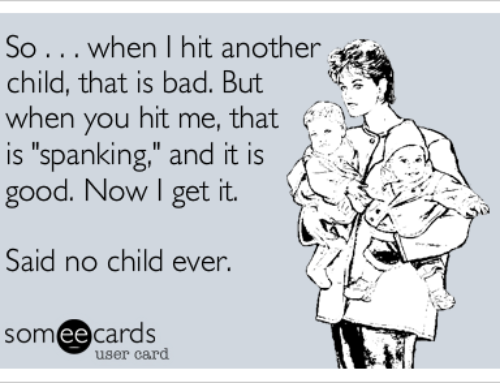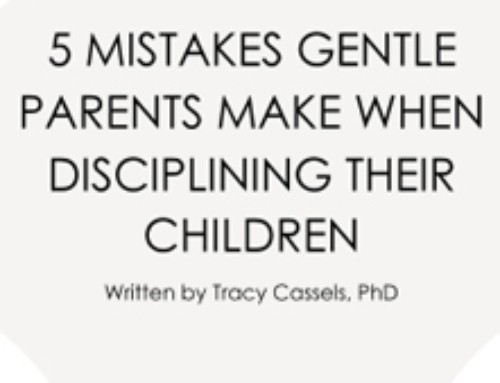
One of the more common ideas in our society when our kids are acting out is that they are doing it “for attention”. This idea can manifest differently and results in different bits of advice, depending on your philosophical approach in parenting. In more mainstream circles of discipline, people are told the answer is to ignore or punish their child when they are doing this. Somehow a cry for attention is a bad thing. (It’s not.)
In more gentle circles, many families know not to ignore or punish, and they know this need for attention isn’t bad, but they still feel they have to address the behaviour or hold it as something the child has to stop in order to get their attention. For example, many gentle parents will see a child whining or throwing things as a cry for the attention they need, but they still feel the need to stop this behaviour first. If they don’t stop the behaviour, then they feel like they have allowed something that is “bad” even if the underlying cause isn’t. It’s the idea of separating the behaviour from the person – our child isn’t bad, but what they are doing is and that’s why we need to change it, but of course without shaming them.
What I want to talk about is the assumption behind this idea and why it’s wrong. You see, for us to feel that we need to address the behaviour can only make sense if we feel the behaviour is intentional or deliberate. And of course we do because it really does seem like they are out to get us to notice them on purpose, right?
This is what I want to challenge. I don’t believe their attention-seeking behaviour is deliberate to get them to notice us, but rather a response or reaction to their dysregulation from the lack of connection (or even predictability) that they are feeling.
If we think about some of the same behaviours we see when kids are hungry, it might help us understand this better. When hungry, lots of kids lose their minds (adults too) and act out. We know this happens because of low blood sugar and the need for more energy to keep them going. We also (hopefully) know that what they do in that state can’t be reasoned with and frankly is a bit out of their control. The solution? We feed them. We don’t worry about making a point about a lesson or their behaviour, but we get food into them stat.
In most cases we don’t even address the behaviour later because we know the cause and we instead look to make sure we don’t get to that state of dysregulation again. As our kids get older we can start to help them identify the feeling of hunger and addressing it themselves before they get dysregulated, but that’s about it.
When our children need connection and are acting out to get it, it’s a surefire way to know that they are also dysregulated. When we are regulated and feeling good about life, we behave accordingly and will often not be compulsively seeking the attention of others. Although we all understand that we can be physiologically dysregulated and act out of that, we forget that dysregulation can come from psychological reasons as well. For all of us, feeling lonely or anxious about something also causes dysregulation and the remedy for that isn’t food or sleep, but connection. We need to meet that need for connection the way we would by providing food or sleep if the problem is physiological.
If you think about how you feel when you’re feeling anxious about something, you may need some time with your partner or a friend to help calm you. Before that time, you may be snappy or distracted or any number of other behaviours. I would imagine that if your loved ones insisted you address your snappiness or distractibility before they offered that time with you, it wouldn’t help you in the moment. In fact, it might make it worse.
This is because it puts the connection we need as conditional. And that connection needed comes from a place of love and love can never be conditional.
What does this mean for us as parents? It means when we see these dysregulated behaviours and we know our children are looking to be with us, we need to meet them there. We need to set aside our ideas of teaching lessons and just be with them as they need us. Maybe – just maybe – there’s a time to talk about specific behaviours later and a space to teach them a different way to ask for us, but really, when our kids are young, we need to just be there for them. That is what love and connection is about.






I am sitting here holding my 5 week old baby, after spending the evening trying to manage his 2.5 year old brothers tantrums in response to me caring for the baby (nursing, rocking etc). I’m at a loss for what to do. I make sure to spend quality “Mama and Lyle” time with my toddler daily for at least 15 minutes (usually twice) in addition to continuing to take a bath and do bedtime with him nightly, but he’s learned that by throwing things or kicking/biting, that I will put down the baby and hold him “until you can be safe’” (along with acknowledging his feelings etc.). So it feels like this way of responding to tantrums is back-firing. All I want to do is connect with him and meet his needs, but I also have to care for the baby and need to find a way to do so without him dissolving into poor behavior everyone I nurse or calm the baby. Would love your thoughts on how to move forward!
I’m in a similar situation too!
I have to I plan out my nursing sessions so that my toddler has an activity to do/snack to eat or find a book to read him while I nurse. Or I breastfeed/cuddle him at the same time to make him feel involved.
When I don’t do these things, he does everything I tell him not to and more!!
This makes me frustrated and I have to put the baby down to stop him doing things because nothing I say stops him.
He is getting better over time, especially the more we involve him with the new baby, I hope this is the case for you too x
Very late reply but it seems like you’re still stuck in the behaviorist mindset in viewing your son’s behavior as a product of classical conditioning. However, what the article argues for is a humanistic view of psychology. Under humanism, what you’re doing is not backfiring, you just haven’t adequately addressed the underlying disregulation behind the behavior (which the behavior is just symptom of under this view psychology). For example, maybe he needs more than 15-30 minutes of quality time with you if that’s possible. Or allow him to be there next to you while you care for the baby.